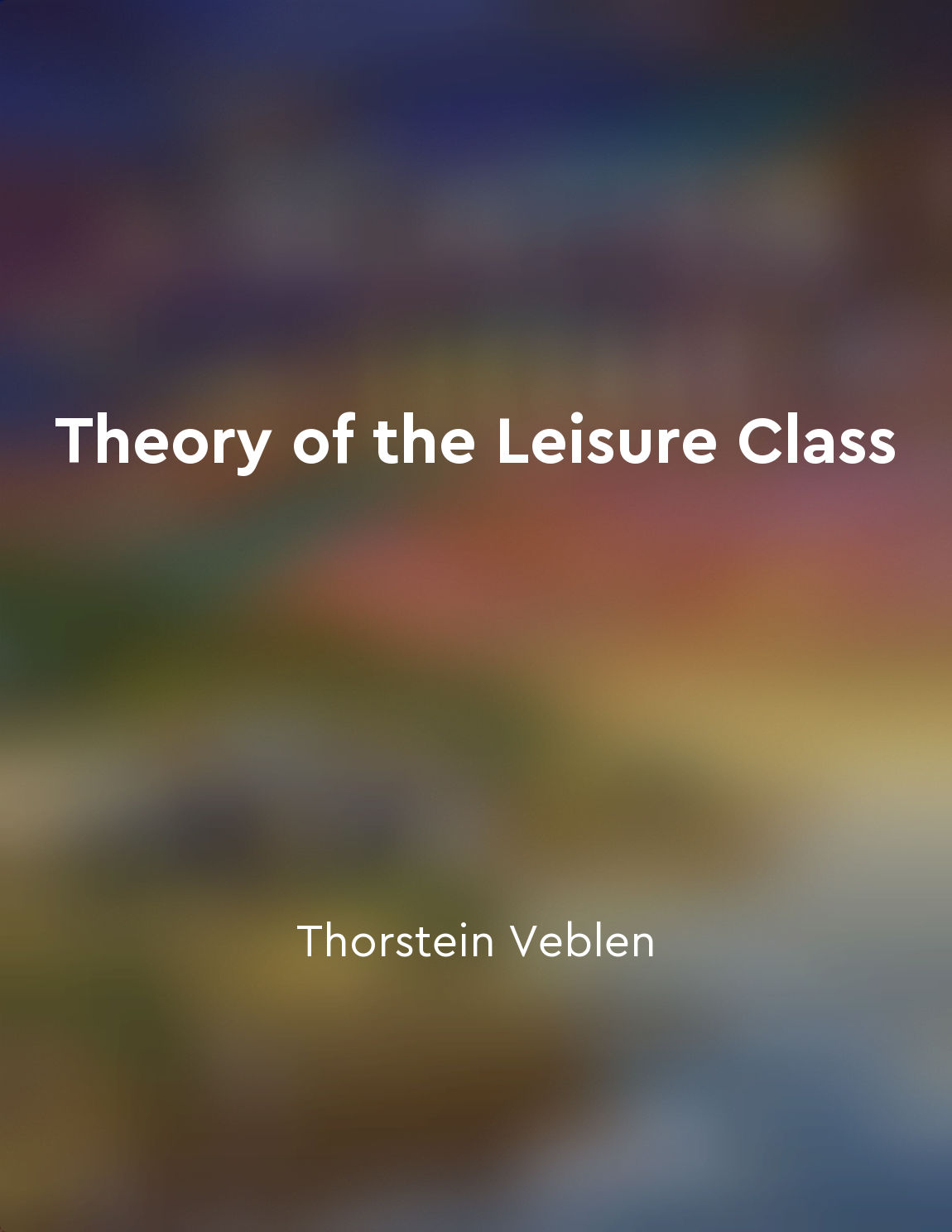Competition for Status drives Conspicuous Consumption from "summary" of Theory of the Leisure Class by Thorstein Veblen
The pursuit of status among individuals within a society is a fundamental drive that underpins much of their behavior. This desire for status is not simply about material wealth or possessions; rather, it is a complex interplay of social and psychological factors that shape how individuals present themselves to others. In many cases, individuals seek to display their status through the consumption of goods and services that are not strictly necessary for survival or comfort. This phenomenon, known as conspicuous consumption, is a key feature of the leisure class and serves as a visible marker of one's social standing. Conspicuous consumption is driven by a competitive urge to outdo one's peers in the display of wealth and social status. This competition for status is a powerful force that compels individuals to engage in ever more extravagant and wasteful forms of consumption. In the quest for status, individuals are motivated not only by a desire to impress others but also by a fear of falling behind in the social hierarchy. This fear of losing status can lead individuals to engage in conspicuous consumption even when it is not in their best interest financially or personally. The pursuit of status through conspicuous consumption is not simply a matter of personal choice or preference; rather, it is deeply embedded in the social and economic structures of society. The leisure class, in particular, plays a central role in perpetuating this cycle of conspicuous consumption, as its members are able to devote a significant portion of their time and resources to the pursuit of status symbols. By conspicuously consuming goods and services that are beyond the reach of the lower classes, the leisure class reinforces its position at the top of the social hierarchy. In this way, the competition for status drives a cycle of conspicuous consumption that serves to maintain and perpetuate existing social hierarchies. As individuals strive to outdo one another in the display of wealth and status, they create a culture of excess and waste that is detrimental to both themselves and society as a whole. This cycle of conspicuous consumption is not simply a reflection of individual preferences or desires; rather, it is a product of the larger social and economic forces that shape our behavior and values. By understanding the role of competition for status in driving conspicuous consumption, we can begin to challenge and change the patterns of behavior that perpetuate inequality and waste in our society.Similar Posts
Consider the environmental consequences of excessive consumption
When we mindlessly consume, purchasing items we don't really need just to fill a void or keep up with the latest trends, we oft...

Education and skills development are essential for financial independence
Education and skills development play a crucial role in achieving financial independence. By continually expanding one's knowle...
Prioritize experiences over possessions
When we place a higher value on experiences rather than possessions, we are actively choosing a simpler, more fulfilling way of...
Simplifying our lifestyle can lead to financial freedom
Simplifying our lifestyle is the key to unlocking financial freedom. By reassessing our priorities and letting go of unnecessar...
Understanding our emotions around money is crucial
Understanding our emotions around money is crucial because it impacts our financial decisions in ways we may not even realize. ...

Recognizing our own biases and prejudices is essential for personal growth
To truly grow as individuals, we must first confront and acknowledge our own biases and prejudices. This is a crucial step in o...

Embracing our flaws and imperfections can lead to greater selfacceptance and growth
In a world obsessed with perfection and image, it can be challenging to embrace our flaws and imperfections. However, it is pre...

The connection between fashion and psychology
Fashion and psychology are two seemingly distinct fields, but upon closer examination, it becomes clear that they are deeply in...
Don't hold onto items out of guilt or obligation
When it comes to decluttering, holding onto items out of guilt or obligation can be a common stumbling block. We often feel a s...
Cultivating a sense of curiosity and openness to new experiences can increase happiness
One key to increasing happiness is to cultivate a sense of curiosity and openness to new experiences. When we approach life wit...

